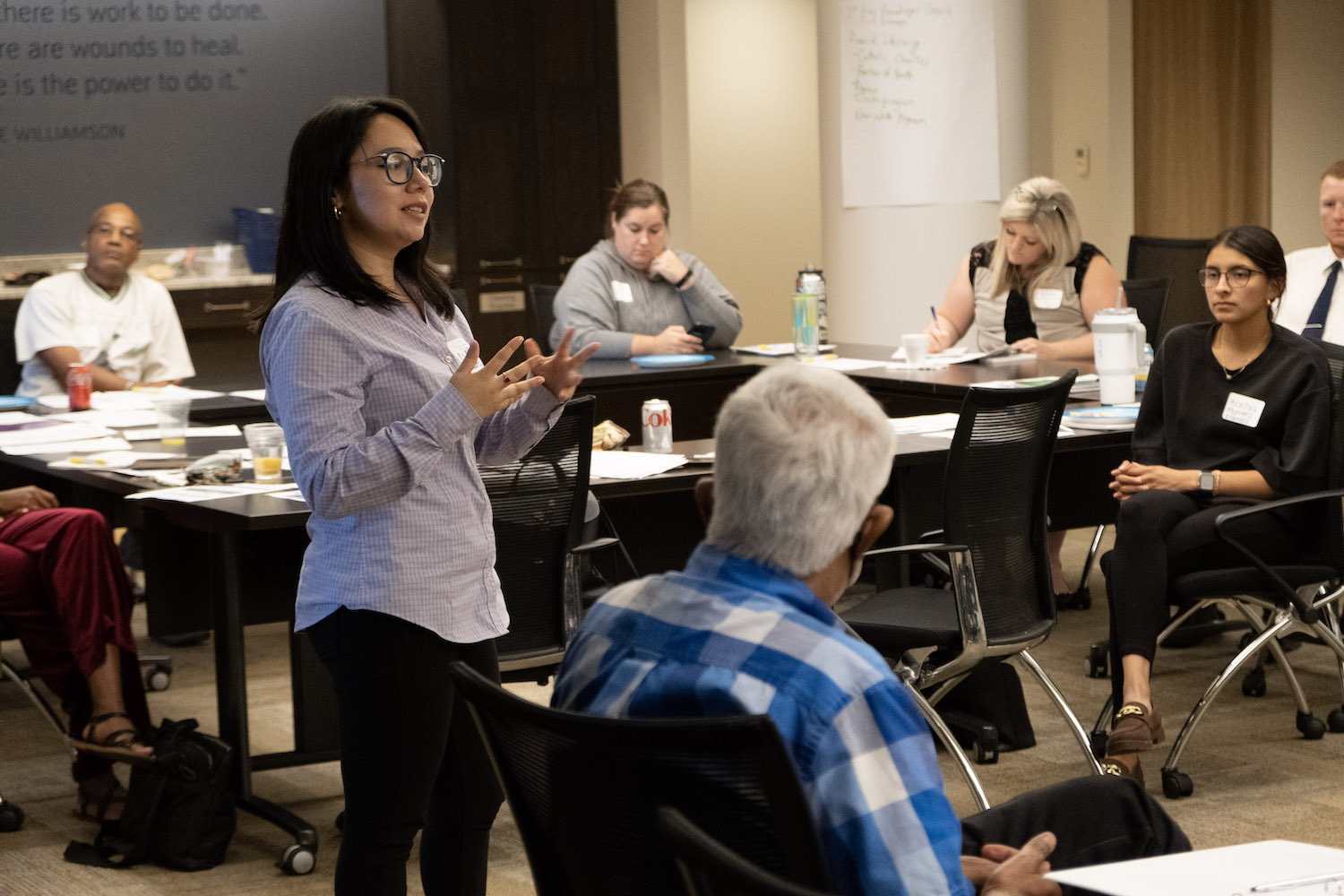Lifting Community Voices

Our Community Equity Profile
This story is part of our Transforming Together series, which highlights 20 key moments in our Foundation’s first 20 years. Read more stories in the series.
Malcolm Stewart moved to Dubuque from Chicago when he was just 10 years old and immediately embraced the culture of his new city. After graduating from college in Dubuque, he began working for a local politician and was motivated to become more involved in the community.
When he heard that the Community Foundation was asking for input from local to create a new Community Equity Profile, he knew it would be a good opportunity to voice his opinions on equity and inclusion topics.
“What I hope to see come out of this process is to have people get a better understanding of each other,” says Malcolm. “There are many people who struggle, and I think having them at the table to talk about their experiences in Dubuque is one of the big benefits of the community dialogues.”
The Community Foundation created Dubuque’s first Equity Profile in 2015 to understand how diverse groups are affected by various systems. The profile took shape based on three types of input: local data, feedback from community members, and focus area specialists.
For seven months, the Foundation hosted community conversations and conducted surveys on different monthly focus areas: Housing, workforce and economic well-being, education, health, transportation, arts and culture, and safety.
The conversations and surveys provided opportunities for community members to share their experiences living in Dubuque. Their feedback was compiled into monthly snapshots and the final Equity Profile, a guide for leaders to understand what is working and what areas for improvement exist.
The input made a significant difference. For example, it inspired the Dubuque Community School District to make equity a key part of its strategic plan. After the profile was published, the district began disaggregating its student data by race and ethnicity, leading to insights about different demographic groups that changed the way it approaches education.
The Equity Profile also led to the formation of volunteer “sector groups” that dug deeper into the seven areas of the profile and made recommendations for how the community could be more equitable and inclusive when it came to issues like housing, arts and culture, and job access.
The Equity Profile’s success led the Community Foundation to kick off the process again in 2022. Partnering with TH Media, publisher of the Telegraph Herald newspaper, the Foundation once again hosted discussions and conducted surveys to learn about the experiences of community members with the goal of updating the profile for a new era.
“The best part about the Equity Profile is that everyone can play a role,” says Clara Lopez Ortiz, the Foundation’s equity coordinator. “All it takes is willingness to share your voice and listen to others.”